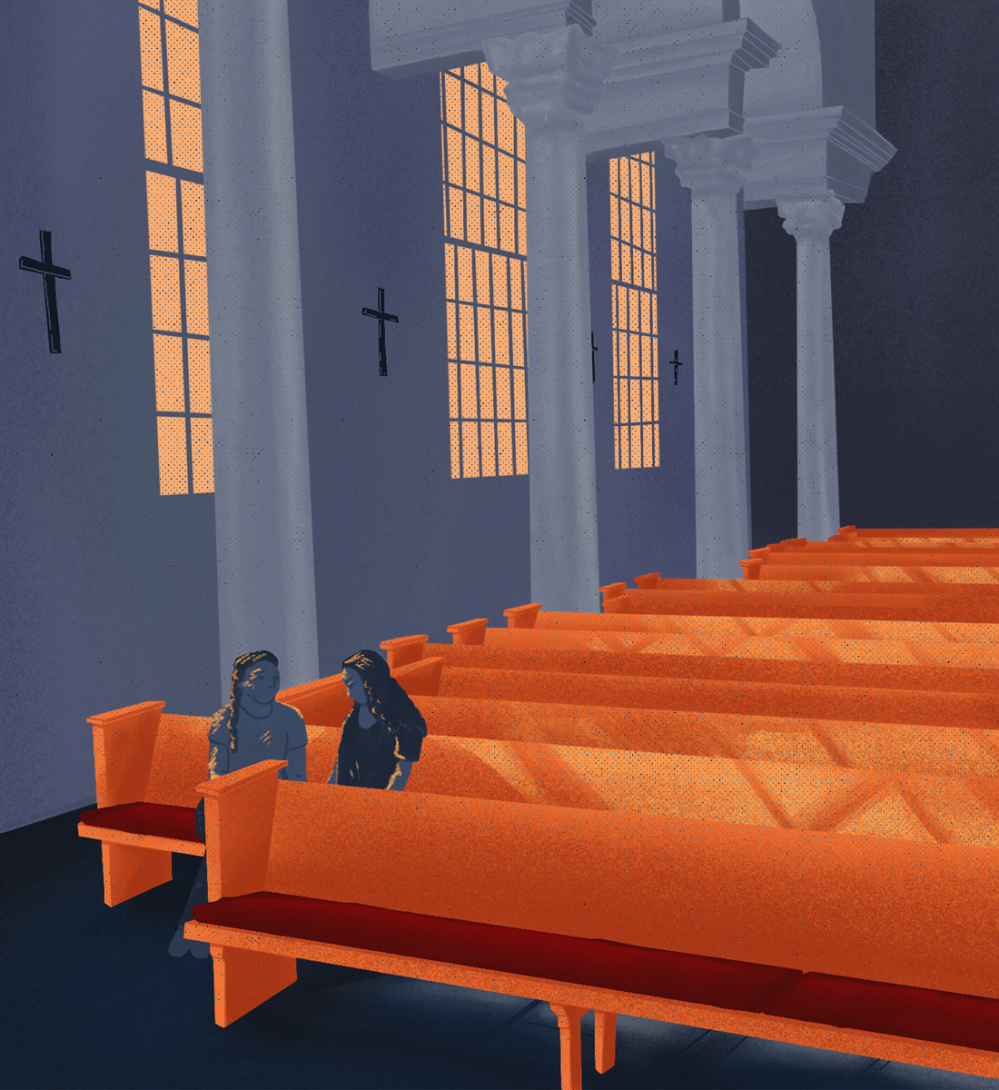“When a foreigner resides among you in your land, do not oppress them. The foreigner residing among you must be treated as your native-born. Love them as yourself, for you were foreigners in Egypt.” (Leviticus 19:33-34)
It was a Tuesday in 2017. Our church marquee read: “#JOSE IS MY NEIGHBOR.” Jose had an asylum case steadily making its way through the court system. However, it turns out that one hand of the justice system, Immigration and Customs Enforcement, the immigration police, does not honor the other hand of the justice system: the courts. ICE had told Jose to report to its New Orleans office the next day for deportation — even though he had legal standing.
Jose entered the sanctuary of First Grace UMC, New Orleans, and lived with us for the better part of a year.
That’s why on that Tuesday, Jose, who had spent 10 years helping rebuild New Orleans after Hurricane Katrina, left his wife and two small daughters and entered the sanctuary of First Grace UMC, New Orleans, and lived with us for the better part of a year.
During these months, Jose fixed everything: HVAC ducts, pipes, tiles and doors. He prepared meals for the hungry. And he prayed for hours in the sanctuary, repeatedly saying to me, “My life is in God’s hands.” Then, after nine months of living in sanctuary, his lawyer got the call from ICE. They told her to “tell Jose to report to the ICE office. We’ve decided NOT to deport him.”
Seven years later, Jose and his spouse are on track for citizenship. His oldest daughter celebrated her quinceañera this summer. And Jose is the head maintenance person at First Grace UMC.
President-elect Donald Trump has said that he plans to end the policy that generally restricts ICE from arresting undocumented people at or near so-called sensitive locations, including houses of worship, schools and hospitals, or in events such as funerals and weddings. He wants to carry out the largest mass deportation in our country’s history.
What kind of country do we want to be?
Maybe we do want our ICE officers to show up in hospital maternity wards as a mother gives birth. Maybe we do want ICE officers blending into the line at school drop-offs. Maybe we do want them standing in the church narthex, waiting for the benediction (maybe) before pushing through wheelchairs, children and “Amens,” looking for their intended “target.”

Maybe. But many, many of us know — don’t we? — that if we go down that road, something will be lost. That something that is good, eternal and not of our making; that persists and persists and is manifested everywhere, in everyone; something we especially expect to be honored in sacred places. In my tradition we call it the soul. We might just call it the sacredness of an individual life.
Remembering that we have sanctuaries and sacred places is first and foremost not about what you think of the unending, always evolving, national policy debate on immigration. Rather, they demand of us a humility regarding how we will treat the person that is standing right in front of us. Especially the vulnerable: children. The disinherited. As the great American and theologian Howard Thurman put it, the person with their back up against the wall. And, especially how you will treat them in the sacred places where they show up the most: churches, schools and hospitals.
If you want a relationship with Jesus, then have a relationship with the poor, with the disinherited, with the dispossessed. With the immigrant.
Followers of Jesus often speak of having “a personal relationship with Jesus.” Jesus said, “Whatsoever you do to the least, you do unto me.” So, if you want a personal relationship with Jesus, then have a personal relationship with the poor, with the disinherited, with the dispossessed. With the immigrant. With Jose. Then, you will know something about Jesus and yourself. It is humbling, and it is intended to be that way. To get our politics out of our hearts and minds and to get our common humanity front and center.












